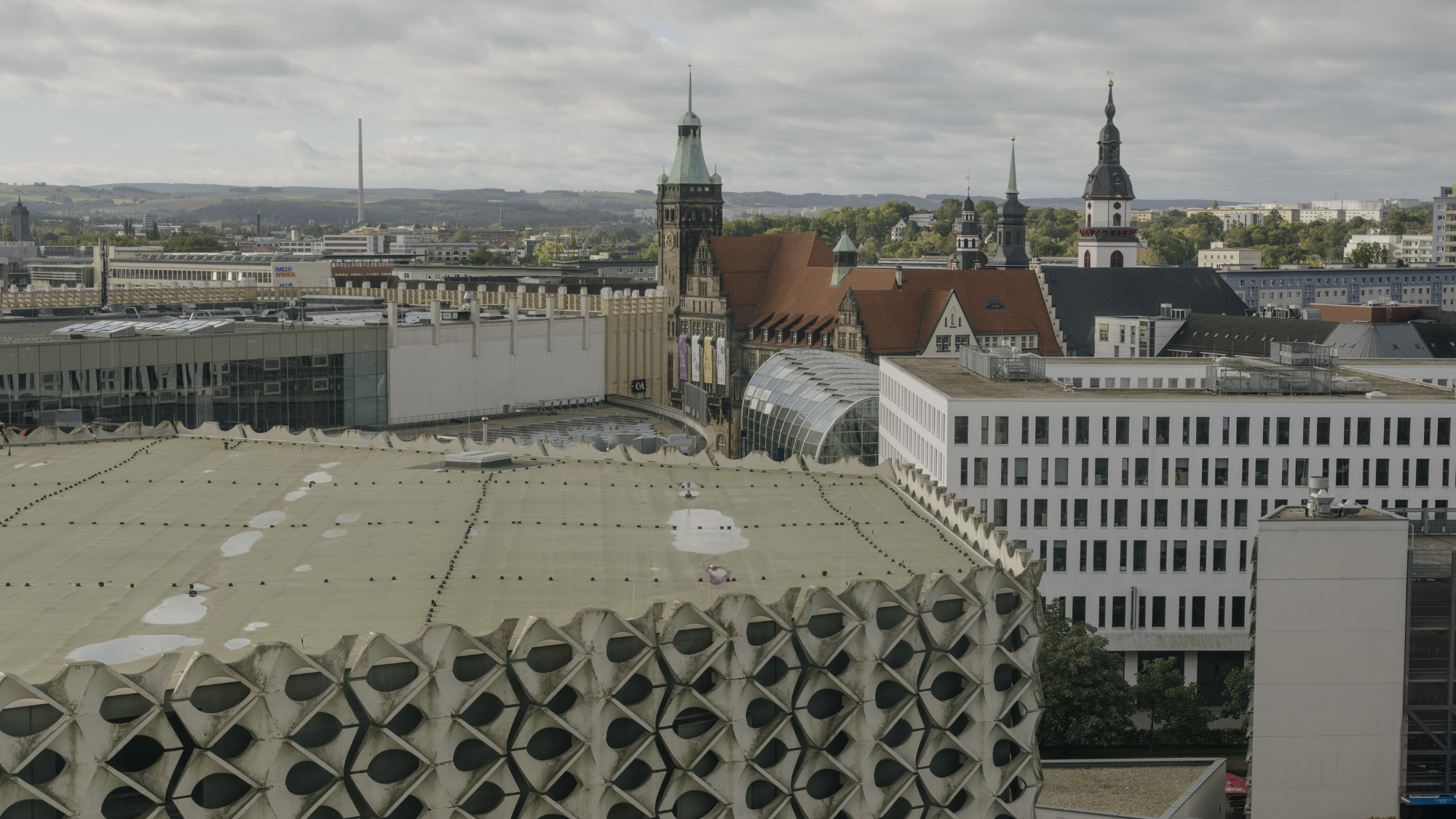Chemnitz: an 'unlikely renaissance' for the 'forgotten' town
The birthplace of Germany's industrial revolution has been reborn as a European Capital of Culture for 2025

A free daily email with the biggest news stories of the day – and the best features from TheWeek.com
You are now subscribed
Your newsletter sign-up was successful
The "largely forgotten" city of Chemnitz in the heart of Saxony has been crowned one of the joint European capitals of culture for 2025, said The Sunday Times.
Formerly known as Karl-Marx-Stadt, the birthplace of Germany's industrial revolution might seem like a surprising choice, until you realise the EU scheme's goal is to put overlooked destinations on the cultural map.
"I must admit, when I first heard the news, it sounded like a particularly unfunny German joke," said William Cook in The Telegraph. Has the "unprepossessing city" really had an "unlikely renaissance?" Once "renowned for its art and music", Chemnitz was "flattened by the RAF" during the Second World War, before being largely rebuilt as a "futuristic citadel of faceless tower blocks" under East Germany's Communist regime.
The Week
Escape your echo chamber. Get the facts behind the news, plus analysis from multiple perspectives.

Sign up for The Week's Free Newsletters
From our morning news briefing to a weekly Good News Newsletter, get the best of The Week delivered directly to your inbox.
From our morning news briefing to a weekly Good News Newsletter, get the best of The Week delivered directly to your inbox.
Today, though, much has changed. Gleaming new buildings are "springing up" while "shabby" old ones have been vastly improved, and there's a sense of "local pride and discreet optimism that's often missing in more touristic destinations".
The "former industrial hub" has hit the headlines in recent years due to right-wing extremist protests, said DW. Now, with its new accolade the city is "fighting for a new image" by bringing its vibrant cultural scene to the fore and welcoming all walks of life.
Chemnitz is peppered with fascinating historical sites, including art nouveau buildings and a 20ft tall bronze Karl Marx monument, which "stands as a reminder of the city's complex past", said Forbes.
Using its industrial history as a "platform for artistic expression", more than 30,000 of its Communist-era garages once used for storing machinery have been transformed into venues that will be hosting a series of vibrant exhibitions. The city has also launched an "expansive" Purple Path art and sculpture trail running through 38 towns and villages in the Chemnitz region, showcasing the works of renowned Saxon artists.
A free daily email with the biggest news stories of the day – and the best features from TheWeek.com
Located around a three-hour drive south of Berlin, Chemnitz isn't "especially easy to get to" but the attractions, spanning everything from blues festivals to theatrical shows in factories, "seem to merit the effort", said The Sunday Times. One example is the "astonishing fine art collection secretly hoarded at the Wismut uranium mine".
"Remarkably" for such a small city, Chemnitz has a range of "excellent" museums, said The Telegraph. The "most spectacular display" can be found at Saxony's state archaeology museum set within a "striking" art deco department store, while the Kunstsammlungen am Theaterplatz art gallery features a "superb" array of German Expressionists. Elsewhere, in a "medieval monastery on a wooded hill, overlooking a tranquil lake", you'll find the Schlossbergmuseum, which is home to a "modest" local history collection.
When it comes to hotels, you can't go wrong with the "majestic" Chemnitzer Hof, said Simon Calder in The Independent. Located in the centre of the city, it was "probably the most atmospheric and comfortable place I stayed last year".
Irenie Forshaw is the features editor at The Week, covering arts, culture and travel. She began her career in journalism at Leeds University, where she wrote for the student newspaper, The Gryphon, before working at The Guardian and The New Statesman Group. Irenie then became a senior writer at Elite Traveler, where she oversaw The Experts column.
-
 Travel for all: 6 of the world’s most accessible destinations
Travel for all: 6 of the world’s most accessible destinationsThe Week Recommends Experience all of Berlin, Singapore and Sydney
-
 The 8 best TV shows of the 1960s
The 8 best TV shows of the 1960sThe Week Recommends The standout shows of this decade take viewers from outer space to the Wild West
-
 The year’s ‘it’ vegetable is a versatile, economical wonder
The year’s ‘it’ vegetable is a versatile, economical wonderthe week recommends How to think about thinking about cabbage
-
 The biggest box office flops of the 21st century
The biggest box office flops of the 21st centuryin depth Unnecessary remakes and turgid, expensive CGI-fests highlight this list of these most notorious box-office losers
-
 Mail incoming: 9 well-made products to jazz up your letters and cards
Mail incoming: 9 well-made products to jazz up your letters and cardsThe Week Recommends Get the write stuff
-
 The 8 best superhero movies of all time
The 8 best superhero movies of all timethe week recommends A genre that now dominates studio filmmaking once struggled to get anyone to take it seriously
-
 One great cookbook: Joshua McFadden’s ‘Six Seasons of Pasta’
One great cookbook: Joshua McFadden’s ‘Six Seasons of Pasta’the week recommends The pasta you know and love. But ever so much better.
-
 How to navigate dating apps to find ‘the one’
How to navigate dating apps to find ‘the one’The Week Recommends Put an end to endless swiping and make real romantic connections


